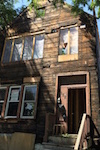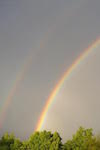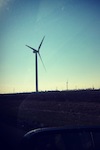The body I am tending is a living and organic revelation of the unseen spirit inside. We are sacraments of the One who made us—beautifully and wonderfully made, as the psalmist would say. I am given charge of this garden from season to season, from birth to death. So, what if I tend to the body the way an attentive gardener would his garden? What then? What is the watering? Where is the history buried here beneath the oak? How do I help to bring about the blooming of springtime flowers even as I embrace the stretch marks and surgery scars in the skin that covers my miraculous muscles?
 The structure underneath—the bones of the house—are good because someone we trust knows they’re good, sturdy, strong and able to be restored, and they can tell us this and we believe them. And maybe that’s what we’re after all along—someone who comes along to tell us that there is treasure here in our bones, someone who can see the intrinsic value in what others might consider a teardown.
The structure underneath—the bones of the house—are good because someone we trust knows they’re good, sturdy, strong and able to be restored, and they can tell us this and we believe them. And maybe that’s what we’re after all along—someone who comes along to tell us that there is treasure here in our bones, someone who can see the intrinsic value in what others might consider a teardown.
 Sometimes it seems that I woke up and found myself here all of a sudden, living this middle-aged version of myself. I catch sight of this body, this secret garden, in the mirror, and I am surprised. It is wild and untended but alive, so very alive. This is the key, unearthed. The decision to love this one body I’ve been given, the decision to care for it well.
Sometimes it seems that I woke up and found myself here all of a sudden, living this middle-aged version of myself. I catch sight of this body, this secret garden, in the mirror, and I am surprised. It is wild and untended but alive, so very alive. This is the key, unearthed. The decision to love this one body I’ve been given, the decision to care for it well.
 I sit for a moment in the reality of my own fortune, my own comfort, my own deep-seated needs and self centered nature. I remember the ashes, the feel of them on my forehead, gritty under Father Boyle’s thumb as he pressed them into the sign of the cross and I breathe then, one deep breath, one heavy sigh that releases shame of that milk carton moment, that column of ash moment, that slow march toward Good Friday. Carus, we are Easter people.
I sit for a moment in the reality of my own fortune, my own comfort, my own deep-seated needs and self centered nature. I remember the ashes, the feel of them on my forehead, gritty under Father Boyle’s thumb as he pressed them into the sign of the cross and I breathe then, one deep breath, one heavy sigh that releases shame of that milk carton moment, that column of ash moment, that slow march toward Good Friday. Carus, we are Easter people.
 It was a few weeks into the class that I suddenly felt as though I was in the ocean, treading water with seasoned and well-equipped scuba divers. The language was the water surrounding me, warm and inviting, salty and buoyant but dark below. It was the darkness that drew me. As much as I tried to get in touch with the text, with the loss of Eden, I felt drawn to the darkness below and I swam in that.
It was a few weeks into the class that I suddenly felt as though I was in the ocean, treading water with seasoned and well-equipped scuba divers. The language was the water surrounding me, warm and inviting, salty and buoyant but dark below. It was the darkness that drew me. As much as I tried to get in touch with the text, with the loss of Eden, I felt drawn to the darkness below and I swam in that.
 Poetry will never buy me bread or pay my rent. It will never pick up my children from school when I’m sick. It will not offer me a ride to the airport. Poetry will slip from my memory when I am old, phrases long memorized will most likely be buried under medical bills and compression hose and even so it will not forsake me completely. It will live deep in my cells, deep in my breath, deep in my history, and my making. It will buoy me when the water rises, when the dark falls, holding me with unseen hands, the memory of years past; words placed like pillars long forgotten.
Poetry will never buy me bread or pay my rent. It will never pick up my children from school when I’m sick. It will not offer me a ride to the airport. Poetry will slip from my memory when I am old, phrases long memorized will most likely be buried under medical bills and compression hose and even so it will not forsake me completely. It will live deep in my cells, deep in my breath, deep in my history, and my making. It will buoy me when the water rises, when the dark falls, holding me with unseen hands, the memory of years past; words placed like pillars long forgotten.
 When my boys ask me on the way to church why I like the Liturgy I tell them, “Because it’s beautiful.” I ask them to look for that beauty, not just now, but always, even one moment of that beauty in the middle of the noise, in the middle of the boredom. I tell them about the wind turbines on either side of I-65 near Lafayette, how on a long journey it’s important that we observe those small moments of beauty, though we might be tired or bored or hungry or distracted.
When my boys ask me on the way to church why I like the Liturgy I tell them, “Because it’s beautiful.” I ask them to look for that beauty, not just now, but always, even one moment of that beauty in the middle of the noise, in the middle of the boredom. I tell them about the wind turbines on either side of I-65 near Lafayette, how on a long journey it’s important that we observe those small moments of beauty, though we might be tired or bored or hungry or distracted.















